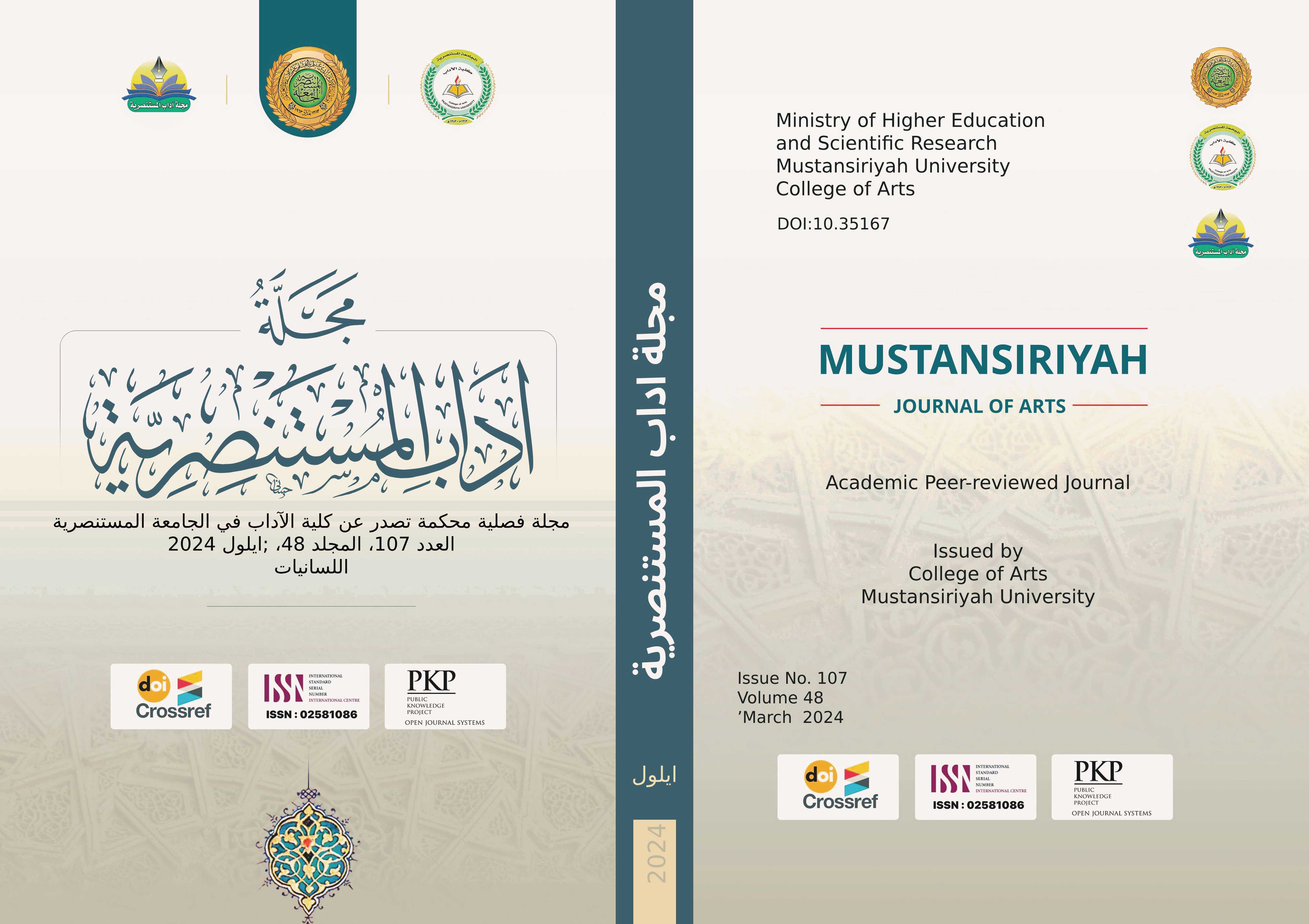The making of the other in the criticism of Ibn Sinan Al-Khafaji (d. 466 AH) in his book The Secret of Eloquence
Abstract
The duality of (the self and the other) represents one of the important issues because they are interconnected, and this interconnectedness cannot be achieved except by the presence of these two parties or issues alike, and this existence varies from oneself to another depending on the difference in the self’s view of the other in terms of accepting or rejecting him and preparing him, and this acceptance or rejection. This is what we notice in the work of an ancient Arab critic from the fifth century AH, who was known for his extensive knowledge of criticism, Arabic rhetoric, and other linguistic sciences. He is Ibn Sinan Al-Khatami (Died. 466 AH), who is known to have been a poet and writer as well. Anyone who meditates on his book titled (The Secret of Eloquence) will find that The presence of the other represented by (the author of the speech, the poet, and the writer) has been dominated by weakness or negativity. This is due to the nature of (Ibn Sinan’s The Ego), which looks at it with a superior look, as he is a critic, linguist, and rhetorician, and knows the secrets of the text. This is due to the transcendence of the ego. The other is despite what he possesses. Knowledge does not exceed what the critical ego of Ibn Sinan possesses, and this is what we have seen in the multiplication of his work, especially since Ibn Sinan did not content himself with directing the other and shaping him in the way he likes, but rather he tried to explain the concept of eloquence and the difference between it and eloquence, indicating the foundations according to which it was determined so that the other could acquire and be aware of knowledge from In all its aspects, this seems to stem from the Arab critic’s passion for the arts of speech, which was revealed by Al-Khafaji.
Downloads
Published
Issue
Section
License

This work is licensed under a Creative Commons Attribution-ShareAlike 4.0 International License.


